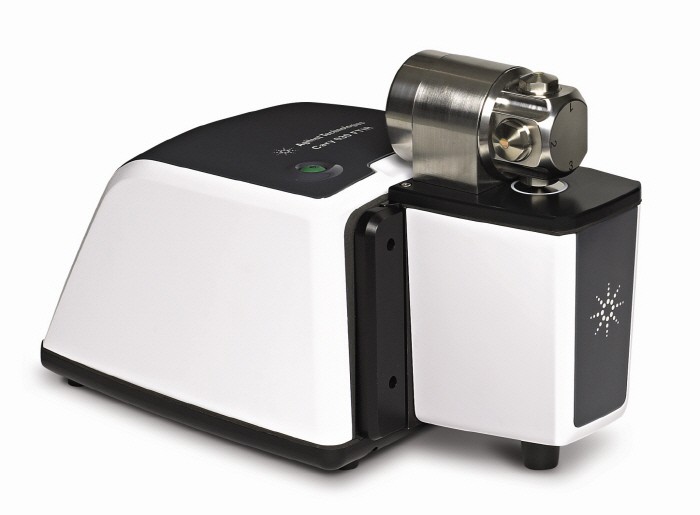Material analysis are the key to success. When our customers ask what material an existing component is made of, it is often not so easy to identify the material in practice. Based on the application, the smell, the look and feel, the strength and the fire behavior, initial conclusions can be drawn about the composition, but the material can rarely be determined beyond doubt. With plastics in particular, many manufacturers use their own formulations, which means that even samples within the same material families can show significant differences. Only professional laboratory tests can provide unambiguous results, but these are usually expensive and take time.
To solve this problem for our customers, we decided to invest in our own material analysis device for plastics (thermoplastics and elastomers). With an FTIR spectrometer, we can identify all plastics including additives and use this to determine which material a component was made from in the past.
Material analysis of plastics on existing components
Customers often come to us and only have one original part in their hands. In such cases, the old suppliers no longer exist, are unknown or there are simply no more records – there are many reasons for this.
In such cases, the aim is to recreate the parts and bring them back to life. The first step is material analysis and a 3D scan.
Our in-house material analysis saves our customers time and money. Within a very short time, we can find out what a component was made of. This enables us to revive parts in the shortest possible time and recreate all associated data (CAD, drawings and specifications).

How the FTIR spectrometer works
The FTIR spectrometer (Fourier transform infrared spectrometer) is a special variant of a spectrometer that can analyze all IR wavelengths with a single measurement.
Here, infrared light passes through a crystal made of an
IR-transparent material (diamond, ZnSe or germanium) and then interacts with the sample that was previously pressed onto the crystal. This generates an interferogram, which then produces an IR spectrum by means of Fourier transformation.
The spectrum determined in this way is then compared with a database, whereby it is compared with the spectra stored there.
We usually carry out material analyses and 3D scans free of charge for our customers, provided there is a realistic chance of obtaining the associated order for series production.
Reverse Engineering

In order to provide our customers with the best possible support, our engineering office is equipped with a material analysis device for plastics, a high-resolution digital microscope, a professional 3D scanner and 3D printers. The 3D scan provides us with the geometry and the material analysis tells us the material of the existing component, if this is not known.
For more info:
Quality assurance with the help of material analyses
In addition to tracing components back to digital data sets (reverse engineering), we also use our material analysis device for quality assurance. This allows initial samples and series parts to be compared and analyzed efficiently and precisely with the specifications. Differences can be quickly identified and documented in this way.
In the world of innovation, quality assurance is the key to success. At Coop, we go the extra mile to ensure the quality of your products. Our material analyses provide comprehensive insights into the composition of the materials used.
We help you to optimize your material for maximum performance. Whether it’s durability, flexibility or specific applications, our analyses provide the blueprint for success.
Quick facts – material analysis
- Identification of thermoplastics and elastomers
- FTIR technology also enables us to identify black samples. As black samples hardly reflect any light, most devices cannot process black material samples.
- Composition of the compound including information on additives
- Samples can usually only be obtained destructively
Use our all-round service
- Personal customer advice and support
- New development, further development, cost optimization
- Creation of concept drawings, production drawings and material lists (BOM)
- Fast prototyping
- Creation of initial sample inspection reports (ISR)
- Demand-oriented production
- International serial supply
- Computer-aided process documentation
- Batch Traceability
- Continuous quality monitoring
Any more questions?
We are happy to advise you and provide you with a non-binding offer.


